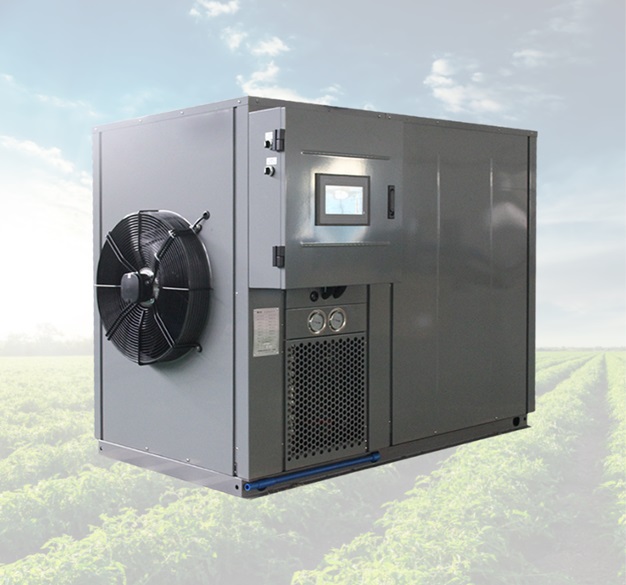The Ultimate Guide to Buying Industrial Food Dehydrators for Your Business

Are you in the food industry and looking for a way to preserve your product without compromising its quality, taste, and nutrients? Look no further than industrial food dehydrators! With the right dehydrator, you can quickly dry fruits, vegetables, meats, and other food items to extend their shelf life and make healthy snacks. But with so many options available on the market, choosing the best one for your business can be overwhelming. That’s why we’ve put together the ultimate guide to buying industrial food dehydrators.
In this guide, we’ll walk you through the different types of dehydrators, their features, and what to consider before purchasing. Whether you’re a small business owner or a large-scale food manufacturer, our guide will help you decide and find the perfect dehydrator to suit your needs. So, let’s dive in and start exploring the world of industrial food dehydrators!
Factors to Consider Before Buying an Industrial Food Dehydrator
Before you order a food dehydrator machine, there are a few factors to consider. These factors will help you narrow your options and find a dehydrator that meets your needs.
Type of Dehydrator
One of the first things to consider is the dehydrator you need. There are two main types of dehydrators: vertical flow and horizontal flow.
Vertical flow dehydrators are typically smaller and more affordable. They work by pulling air through the bottom of the unit and pushing it up through the trays. This type of dehydrator is best for small businesses or home use.
Horizontal flow dehydrators are larger and more expensive. They work by blowing hot air across the trays from the back of the unit. This type of dehydrator is best for large-scale food manufacturers.
Temperature Range
Another essential factor to consider is the temperature range of the dehydrator. Different foods require different temperatures to dehydrate properly. For example, fruits and vegetables typically need to be dried at a lower temperature, while meats and jerky require a higher temperature.
Make sure the dehydrator you choose has a temperature range suitable for the foods you plan to dehydrate.
Durability
The durability of the dehydrator is also an essential factor to consider. You want a dehydrator built to last and withstand frequent use.
Look for dehydrators that are made from high-quality materials and have solid construction for food dehydration. Stainless steel is popular because it is durable and easy to clean.
Capacity and Size Considerations for Industrial Food Dehydrators
Capacity and size are also important considerations when choosing an industrial food dehydrator. The dehydrator’s capacity will determine how much food you can dehydrate at one time, while the size will determine how much space the dehydrator will take up in your facility.
Capacity
The capacity of the dehydrator is typically measured in pounds or kilograms. Make sure you choose a dehydrator with a capacity that meets your needs.
A smaller-capacity dehydrator may be suitable if you have a small business or plan to use the dehydrator for home use. However, if you are a large-scale food manufacturer, you will need a dehydrator with a higher capacity.
Size
The size of the dehydrator is also an important consideration. Ensure you have enough space in your facility to accommodate your chosen dehydrator.
If you have limited space, you may consider a smaller dehydrator or one that can be easily stored when not in use. However, if you have a large facility, you may be able to accommodate a larger dehydrator.
Energy Efficiency and Maintenance of Industrial Food Dehydrators
Energy efficiency and maintenance are two essential factors to consider when choosing an industrial food dehydrator. A dehydrator that is energy efficient will help you save on your energy bills, while a dehydrator that is easy to maintain will save you time and money on repairs.
Energy Efficiency
Look for Energy Star-certified dehydrators, as these dehydrators are designed to be energy efficient. You can also look for dehydrators that have a timer or automatic shut-off feature, as these features will help you save on energy costs.
Maintenance
Maintenance is also an important consideration. Look for dehydrators that are easy to clean and maintain. Stainless steel dehydrators are easy to clean and are less likely to rust or corrode over time.
It would help if you also looked for dehydrators with a warranty, as this will protect you in case of any defects or issues with the dehydrator.
Conclusion
Choosing an industrial food dehydrator may seem overwhelming, but considering the factors outlined in this guide, you can find the perfect dehydrator to suit your needs. Remember to consider the type of dehydrator, temperature range, durability, capacity, size, energy efficiency, and maintenance when deciding. With a suitable dehydrator, you can extend the shelf life of your produce, reduce waste, and create healthy snacks for your customers.